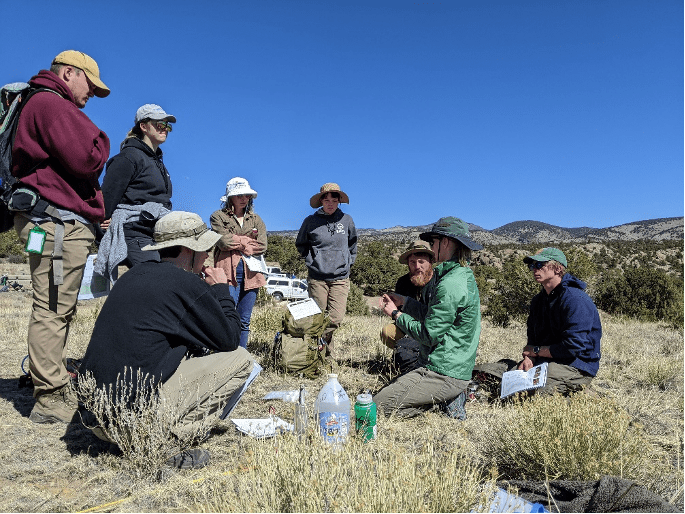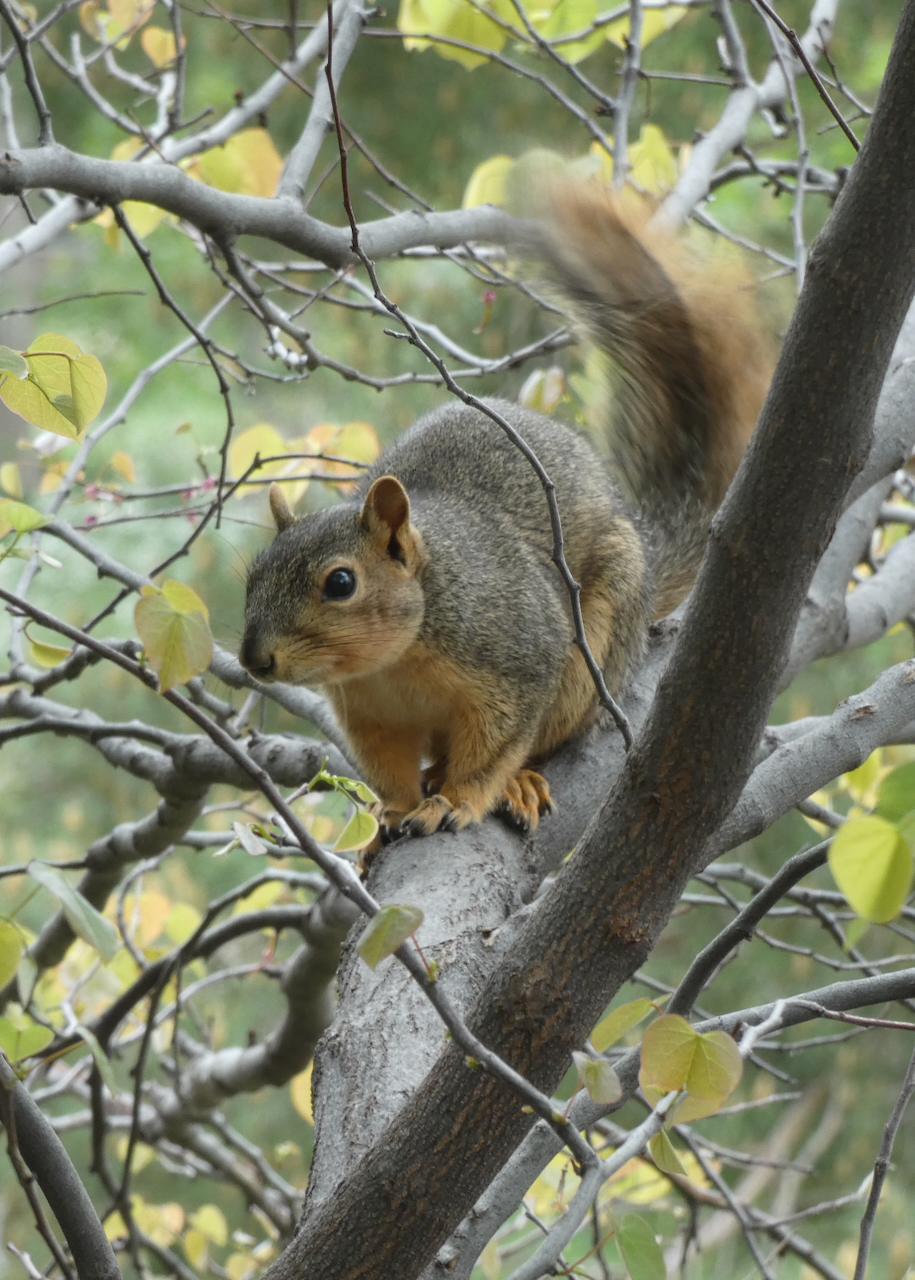Deer generally avoid eating black walnuts due to their bitter taste. The tree’s compounds and aroma discourage deer from feeding on them.
Understanding the foraging habits of deer is essential for gardeners and homeowners who wish to protect their plants. The black walnut tree, known for its robust wood and flavorful nuts, is often considered a deterrent for deer, which can be a major relief in areas where deer populations are high.
The presence of juglone, a chemical produced by the tree, is particularly unpalatable to many species, including deer. This natural repellent quality allows black walnuts to thrive without the pressure of deer grazing. By planting black walnut trees, one could potentially lessen the impact of deer on other more sensitive flora. Consequently, those cultivating landscapes or managing woodlands can utilize black walnut trees as a strategic component of deer-resistant greenery.

Credit: www.amazon.com
Contents
The Deer’s Diet
Understanding the deer’s diet is vital when exploring their relationship with different plants. Deer are known for being highly adaptable foragers. Yet, the question remains: do deer favor black walnuts?
Herbivore Habits
Deer are herbivores, meaning their diet consists strictly of vegetation. The natural diet of a deer includes:
- Grasses
- Shoots
- Leaves
- Fruits
- Nuts
Black walnuts, however, are less commonly consumed. This is due to the juglone toxin found in the nuts, which can be harmful to deer in large quantities.
Seasonal Feeding Patterns
Deer change their diet with the seasons. They need to adapt based on available food sources:
| Season | Common Food Sources |
|---|---|
| Spring | New growth, wildflowers |
| Summer | Leaves, fruits, nuts |
| Fall | Acorns, corn, soybeans |
| Winter | Woody plants, buds, evergreens |
During autumn, deer may eat nuts such as acorns. But black walnuts are noticeably absent from their fall feast. The deer’s instinctive avoidance suggests a natural self-regulation to steer clear of potential toxins.
Black Walnuts Unveiled
Many creatures enjoy the gifts of a forest. Some of these gifts are tasty nuts like black walnuts. Black walnuts are special. They are not just any nuts. Forest animals, like deer, might snack on them. Let’s uncover the secrets of black walnuts.
Tree Characteristics
The black walnut tree stands tall and majestic in the forest.
- Can grow up to 100 feet
- Has a canopy spread of 70 feet
- Leaves are long, up to 24 inches
- Grows green hulls that turn black
Its wood is very valuable. People use it for furniture and flooring. The tree takes a long time to bear fruit. But when it does, it provides lots of nuts.
Nutritional Value
Black walnuts are not just delicious. They are full of good stuff.
| Nutrient | Value |
|---|---|
| Protein | High |
| Fats | Healthy fats |
| Fiber | Good amount |
| Vitamins | B6, E |
| Minerals | Magnesium, Potassium |
These nutrients are good for all animals, including deer. Deer may find these nuts hard to crack. But the nutritional rewards are worth the effort.
Interactions With Wildlife
Nature thrives on connections between plants and animals. Particularly, the relationship between black walnuts and wildlife stands out. Trees provide food and creatures consume it. This simple interaction keeps the forest alive. Below, explore who feasts on these nuts and how deer fit into this ecosystem.
Common Consumers
Many animals look to black walnuts as a food source. Squirrels, chipmunks, and birds frequently gather these nuts.
- Birds: Woodpeckers and turkeys enjoy black walnuts.
- Rodents: Squirrels and chipmunks store them for winter.
- Large mammals: Bears may consume them when other food is scarce.
Deer As Foragers
Deer are versatile feeders known to eat various plants. They do consume nuts but black walnuts are not their preferred choice.
Why don’t deer favor black walnuts?
- The nuts have a strong, bitter taste.
- Deer find them hard to crack open.
- There are easier food options available.
When food is scarce, deer might nibble on fallen black walnuts. They prefer softer, sweeter nuts, like acorns.

Credit: www.usaconservation.org
The Truth About Deer And Black Walnuts
The Truth About Deer and Black Walnuts unveils the complex relationship between the natural dietary preferences of deer and the availability of black walnuts. Many wonder if these large nuts serve as a food source for deer. This exploration seeks to debunk myths and lay out the facts.
Palatability Factors
Several factors determine the palatability of black walnuts for deer. The taste, texture, and availability of these nuts contribute to their appeal.
- Taste: Black walnuts have a strong, distinctive flavor that may not be preferred by deer.
- Texture: The hard shell can be challenging for deer to crack open.
- Availability: These nuts are seasonally abundant, potentially increasing their consumption.
Digestive Challenges
Deer face several digestive hurdles when it comes to black walnuts. Understanding these can clarify why deer may avoid them.
- Hard Shells: Deer’s teeth are not designed to crack open the tough shells of black walnuts.
- Nutrient Extraction: Even if ingested, the extraction of nutrients from such hard nuts is difficult for deer.
Impacts Of Deer On Walnut Populations
The relationship between deer and black walnut trees is complex. Many wonder, do deer eat black walnuts? The answer is not as straightforward as one might think. While deer typically prefer softer, green vegetation, they may impact walnut populations in indirect ways.
Ecological Consequences
Deer browsing habits can significantly affect young black walnut trees. Although adult walnuts produce tough, bitter nuts that deer tend to avoid, tender young shoots and leaves of walnut saplings may fall victim to grazing. Large deer populations can limit the growth and survival of these young trees.
This overbrowsing can lead to fewer mature black walnut trees. Here’s what can happen within the ecosystem:
- Lower nut production: Fewer adult trees means less nuts for wildlife that rely on them.
- Biodiversity loss: Other species dependent on black walnuts may suffer.
- Trees’ ability to sequester carbon weakens with reduced numbers.
Conservation Concerns
The interplay between deer and black walnut trees has conservation implications. Concerns mount especially in areas with dense deer populations. It becomes harder for black walnuts to thrive due to consistent grazing. Fortunately, targeted conservation strategies can help.
Effective measures include:
- Implementing deer management programs to control populations.
- Protecting saplings with physical barriers or repellents.
- Encouraging a mix of species to ensure ecosystem balance.
These efforts can promote healthier black walnut populations. They also keep the ecosystem intact for future generations.

Credit: toddmitchellbooks.com
Feeding Strategies For Healthy Deer
Understanding what deer eat is crucial for their health and growth. Surprisingly, many wonder about black walnuts as a food source. While not a top choice for deer, these nuts can be part of their complex diet. However, a balanced feeding strategy is key for healthy deer.
Dietary Supplements
Providing extra nutrients can help support deer populations, especially in areas with limited natural food sources. When natural foods are scarce, supplements can prevent malnutrition.
- Mineral blocks: Offer trace minerals for bone and antler growth.
- Commercial deer feed: Ensure it includes essential vitamins and minerals.
Habitat Management
Healthy habitats support diverse wildlife, including deer. An optimized environment promotes natural foraging, allowing deer to thrive.
- Food plots: Grow native plants that deer naturally eat.
- Water sources: Maintain clean water for hydration.
| Habitat Aspect | Details | Benefits for Deer |
|---|---|---|
| Plant Diversity | Includes grasses, forbs, and shrubs | Nutritional variety, better foraging options |
| Forested Areas | Consists of hardwoods and softwoods | Shelter and additional food sources like acorns |
Frequently Asked Questions On Do Deer Eat Black Walnuts
Do Deer Like Eating Black Walnuts?
No, deer typically avoid black walnuts due to their strong taste and hard shells. The bitter-tasting compounds and the difficulty in accessing the nut meat deter deer from eating them.
Can Black Walnuts Be Harmful To Deer?
Yes, black walnuts contain juglone, a compound that can be toxic to deer if consumed in large quantities. However, deer usually steer clear of these nuts, minimizing the risk.
What Do Deer Prefer Over Black Walnuts?
Deer generally prefer softer, sweeter nuts like acorns or chestnuts. They also enjoy a varied diet of leaves, twigs, fruits, and agricultural crops over hard nuts like black walnuts.
How To Protect Black Walnut Trees From Deer?
To protect black walnut trees, use physical barriers like tree guards or fencing. Installing motion-activated sprinklers or using deer repellents can also discourage deer from approaching.
Conclusion
Deer show selective feeding habits, often bypassing black walnuts due to their strong taste and hard shells. It’s clear that while these nuts are not a primary choice, deer might still nibble on them in scarce conditions. Understanding deer diets helps us maintain balanced ecosystems and manage wildlife resources effectively.
Prioritize native planting to support local fauna and ensure a thriving habitat.


